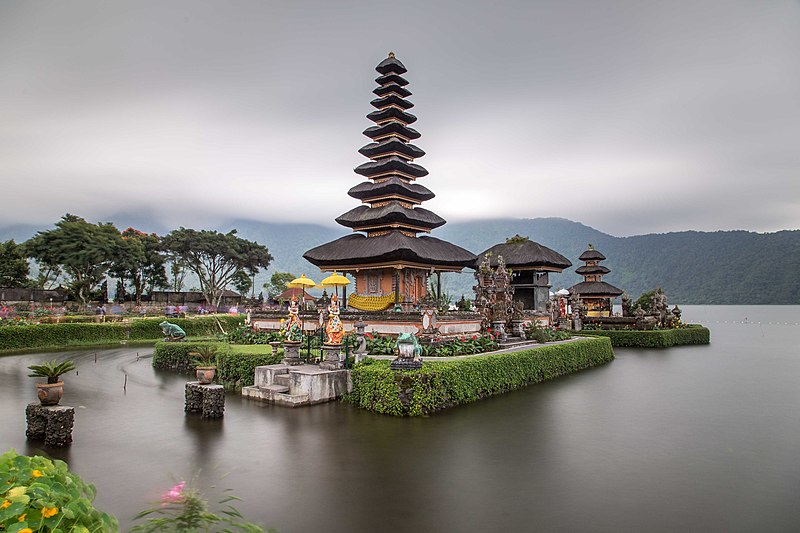Bali, the Island of the Gods, is a mesmerizing jewel in the Indonesian archipelago that captivates millions of visitors each year with its rich culture, stunning landscapes, and vibrant way of life. This tropical paradise is renowned for its lush greenery, pristine beaches, ancient temples, and warm hospitality, making it a haven for those seeking a perfect blend of relaxation and cultural exploration.
Geographically, Bali is situated in the westernmost end of the Lesser Sunda Islands, lying between Java to the west and Lombok to the east. The island spans approximately 5,780 square kilometers and is surrounded by the Bali Sea to the north, the Indian Ocean to the south, and the Bali Strait to the west.
One of the most striking features of Bali is its diverse landscapes. The island boasts majestic volcanic mountains, with Mount Agung standing as the highest peak at 3,031 meters above sea level. These volcanic slopes give rise to verdant rice terraces, especially in regions like Tegallalang, where the traditional subak irrigation system has shaped the landscape for centuries. The UNESCO-listed Subak System reflects Bali’s commitment to sustainable agriculture, emphasizing the intricate connection between the Balinese people and their environment.
Bali’s coastline is adorned with pristine beaches, ranging from the popular Kuta and Seminyak to the more secluded stretches in Uluwatu and Padang Padang. Each beach has its unique charm, catering to various preferences, from surfing enthusiasts to those seeking a tranquil sunbathing experience. The island’s waters are a playground for water sports, including snorkeling and scuba diving, where vibrant coral reefs and diverse marine life await exploration.
Beyond its natural beauty, Bali is steeped in a rich cultural tapestry. The island is predominantly Hindu, and this spiritual influence is evident in the myriad temples scattered across its landscape. The Mother Temple of Besakih, perched on the slopes of Mount Agung, is the holiest and largest temple complex on the island. Tanah Lot, a sea temple, is another iconic site, set dramatically on a rock formation amidst the crashing waves.
The Balinese people are known for their warm and welcoming nature, with hospitality deeply ingrained in their cultural ethos. Visitors often find themselves immersed in the vibrant festivals and ceremonies that regularly punctuate the island’s calendar. The most famous among these is Nyepi, the Day of Silence, where the entire island comes to a standstill, reflecting on self-reflection and spiritual renewal.
The arts also thrive in Bali, with traditional dances, music, and intricate crafts playing a central role in the island’s identity. Ubud, often referred to as the cultural heart of Bali, is a haven for art lovers and those seeking a deeper understanding of Balinese traditions. The town is home to numerous galleries, museums, and performance spaces that showcase the island’s artistic prowess.
Bali’s cuisine is a delightful exploration of flavors, with traditional dishes such as nasi goreng (fried rice) and babi guling (suckling pig) tempting the taste buds. Warungs (local eateries) and upscale restaurants alike offer a diverse range of culinary experiences, reflecting the island’s status as a melting pot of international influences.
In conclusion, Bali’s allure lies in its ability to seamlessly blend natural beauty, cultural richness, and warm hospitality. Whether one seeks the thrill of adventure, the tranquility of a beach retreat, or the immersion in a vibrant cultural tapestry, Bali offers a kaleidoscope of experiences that leave an indelible mark on every visitor fortunate enough to set foot on this enchanting island.



